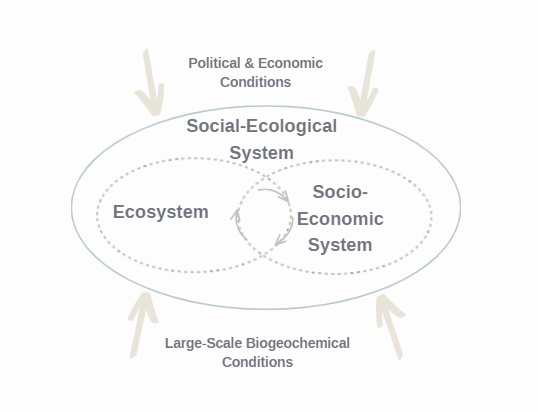Climate Change Adaptation in Rural Mountain Regions: A Resilience Perspective
Supervisor: Ulrike PRÖBSTL-HAIDER
Project assigned to: Meike JUNGNICKEL
The advance of climate change will require adaptation on different levels particularly on individual, communal, municipal and regional level. In the European Alps, many rural regions have traditionally been dependent on winter and summer tourism. With impacts of climate change such as decreasing snow reliability, regions will need to adapt their development strategies (Pröbstl-Haider et al., 2021). Climate change impacts the complex interplay of regional ecological and socio-economic aspects and more research is required to understand this dynamic. Applying the socio-ecological systems (SES) theory, as advocated by scholars like Schouten et al. (2012) and Virapongse et al. (2016), can enable multidisciplinary analyses. In connection to SES theory the notion of a system’s resilience towards external disturbances has been brought forward. Resilience, though context-dependent, is thought to be central for regions to withstand and adapt to impacts such as climate change (Beichler et al., 2014; Biggs et al., 2016; Cumming, 2011; Walker et al., 2006). Regarding the application of the regional resilience frame in relation multidisciplinary climate change adaptation, the research is still fragmentary. Consequently, a research gap exists on how climate change impacts the complex interplay of regional ecological and socio-economic aspects and for the operationalization of regional resilience.
Consequently, this contribution to the doctoral school HADRIAN investigates the natural and human interactions with respect to regional climate change in rural mountain regions of Austria. In this regard the project explores how SES theory can aid in understanding the dynamics of climate change impacts in rural Alpine regions, in particular the Ötscher region, focusing on long-term responses to global climate change. In combining the SES framework with resilience theory, the project aims to identify system dynamics supporting regional climate change adaptation. In order to operationalize regional resilience with regards to climate change adaptation, criteria and indicators and their interaction will be analysed. For this purpose, firstly, we will analyse the impact of climate change on the SES of the Ötscher region and its resilience Then we will investigate and operationalize opportunities to overcome these challenges and develop new pathways for a resilient future development in close cooperation with the local population.

Figure 1: Socio-ecological systems adapted from Virapongse et al. (2016)
Research Questions:
R1: How and to what extent is SES theory helpful to understand key problems especially in the context of climate change?
R2: How can the resilience concept aid in regional climate adaptation processes and to set up tailored measures for regional climate change adaptation?
R3: Can the project develop new future pathways and innovative regional strategies which are accepted by the general population and likely to be implemented?
R4: Which drivers and barriers hinder the implementation of resilient innovative concepts regarding climate change in the region?
References
Beichler, S. A., Hasibovic, S., Davidse, B. J., & Deppisch, S. (2014). The role played by social-ecological resilience as a method of integration in interdisciplinary research. Ecology and Society, 19(3). doi.org/10.5751/ES-06583-190304
Biggs, R., Schlüter, M., & Schoon, M. L. (Eds.). (2016). Principles for building resilience: Sustaining ecosystem services in social-ecological systems (4th printing). Cambridge University Press.
Cumming, G. S. (2011). Spatial Resilience in Social-Ecological Systems. Springer Netherlands. doi.org/10.1007/978-94-007-0307-0
Pröbstl-Haider, U., Mostegl, N., & Damm, A. (2021). Tourism and climate change – A discussion of suitable strategies for Austria. Journal of Outdoor Recreation and Tourism, 34, 100394. doi.org/10.1016/j.jort.2021.100394
Schouten, M. A., van der Heide, C. M., Heijman, W. J., & Opdam, P. F. (2012). A resilience-based policy evaluation framework: Application to European rural development policies. Ecological Economics, 81, 165–175. doi.org/10.1016/j.ecolecon.2012.07.004
Virapongse, A., Brooks, S., Metcalf, E. C., Zedalis, M., Gosz, J., Kliskey, A., & Alessa, L. (2016). A social-ecological systems approach for environmental management. Journal of Environmental Management, 178, 83–91. doi.org/10.1016/j.jenvman.2016.02.028
Walker, B., Gunderson, L., Kinzig, A., Folke, C., Carpenter, S., & Schultz, L. (2006). A Handful of Heuristics and Some Propositions for Understanding Resilience in Social-Ecological Systems. Ecology and Society, 11(1). www.jstor.org/stable/26267801
